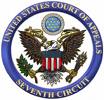Seventh Circuit Criminal Case of the Week: When Is It a Crime to Stuff the Drawing Box?
 In April 2005, the Ho-Chunk casino in Baraboo, Wisconsin, sponsored a drawing in which one lucky winner would receive $10,000. The rules of the drawing identified a number of ways that participants could obtain entry forms, with each new entry increasing a participant’s odds of winning. Two participants, however, chose to circumvent the prescribed processes by photocopying thousands of entry forms and stuffing the drawing box. By the time of the drawing, Darwin Moore and Bruce Knutson had their names on more than sixty percent of the entry forms. Knutson won the drawing, but then faced federal criminal charges, thanks to snitching by Moore’s ex-girlfriend. Eventually, Moore and Knutson were both convicted of theft from an Indian gaming establishment, and each received a ten-month sentence.
In April 2005, the Ho-Chunk casino in Baraboo, Wisconsin, sponsored a drawing in which one lucky winner would receive $10,000. The rules of the drawing identified a number of ways that participants could obtain entry forms, with each new entry increasing a participant’s odds of winning. Two participants, however, chose to circumvent the prescribed processes by photocopying thousands of entry forms and stuffing the drawing box. By the time of the drawing, Darwin Moore and Bruce Knutson had their names on more than sixty percent of the entry forms. Knutson won the drawing, but then faced federal criminal charges, thanks to snitching by Moore’s ex-girlfriend. Eventually, Moore and Knutson were both convicted of theft from an Indian gaming establishment, and each received a ten-month sentence.
On appeal, the two defendants argued that the indictment was insufficient because it failed to state an offense. They observed that the drawing rules did not expressly prohibit the submission of photocopied forms and asserted that they were merely exploiting a loophole, rather than committing a crime. The Seventh Circuit, however, affirmed their convictions in United States v. Moore (Nos. 08-1177 & 08-1615) (Evans, J.).


